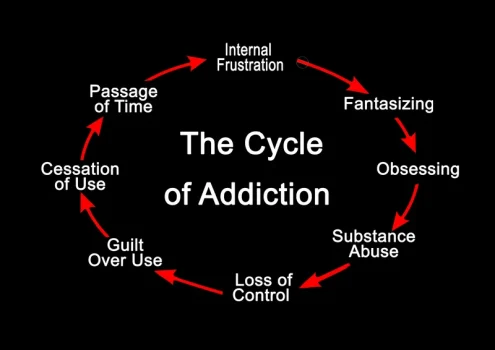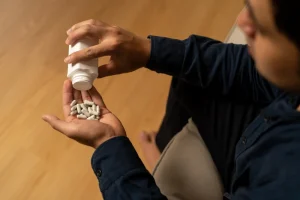
There were no sexdifferences or interactions between diagnosis and sex for K-complex incidence, P2amplitude or P2 latency. Frontal (but not posterior) N550 and P900 amplitudes were smallerin alcoholics than controls and smaller in men than women, but the sex difference alcohol insomnia was notrelated to diagnosis. Latencies of N550 and P900 did not differ as a function of diagnosisor sex. The percentage of the night spent in different sleep stages (Rechtschaffen and Kales 1968) in men and women with alcoholdependence and sex-matched control.
How does alcohol affect sleep?
- If a person chooses to consume alcohol, drinking in moderation several hours before bed is the best practice for avoiding sleep disturbances.
- Nosex differences in the effects of alcohol on sleep were seen in the group of olderadolescents studied by Chan et al. (Chan et al.2013).
- It’s common for someone who’s alcohol-dependent to experience long-term sleep problems since insomnia and other sleep disorders are typical symptoms of alcoholism.
- Anyone experiencing insomnia should speak with a doctor to learn more about what treatments may work best for them.
Although experts can’t be certain that alcohol directly causes insomnia, numerous studies have found a link between this sleep disorder and alcohol consumption. It’s important to treat sleep disorders such as insomnia (difficulty falling or staying asleep) or sleep apnea (when breathing stops multiple time a night) if they are present. Cortisol rhythms show no evidence for disruption early in withdrawal or two tofour weeks post drinking in two studies (Mukai et al.1998; Fonzi et al. 1994). However, thosewith delirium tremens did have altered rhythms (Mukai et al.1998; Fonzi et al. 1994). Kuhlwein, Hauger and Irwin (2003) reported lower cortisol early inthe night and higher levels later in the night in their African American alcoholics aftertwo weeks. Rundell et al. (1972) studied seven youngmen over three nights of drinking with alcohol administered over an hour, ending 30minutes before bed, with blood alcohol concentrations at bedtime between 0.05 and 0.095 mgpercent.
0 Acute effects of alcohol on sleep
For example, you might feel overstimulated, restless, and anxious after quitting. Heavy consumption of alcohol over an extended period of time leads to increased tolerance and this tolerance is accompanied by adaptation of the neurotransmitter systems5. Furthermore, long-term consequences of alcohol may lead to changes in sleep regulation.
How does alcohol affect people with insomnia?
And, as long as you don’t have an alcohol use problem, you may not have to give up drinking altogether. Alcohol is classified as a central nervous system depressant, meaning it slows down brain activity. While “relaxed” may sound appealing, alcohol has also been shown to negatively affect sleep and other physiological processes that occur during sleep. So, does alcohol help you https://ecosoberhouse.com/ sleep or is it actually interfering with your quality of rest? Read on to find out how alcohol can affect your sleep, and why—as well as insight into the health benefits of getting enough shut-eye. People who go to bed with alcohol in their system may be more likely to wake early in the morning and not be able to fall back to sleep, another consequence of the rebound effect.


As your body metabolizes the alcohol and the sedative effects wear off, it can interfere with your circadian rhythm, and cause you to wake up frequently or before you’re properly rested. Short-term insomnia is usually due to stress or a distressing event. But some people have long-term insomnia, also called chronic insomnia. Insomnia may be the main problem, or it may be related to other medical conditions or medicines. The good news is that these sleep disruptions are temporary, and any insomnia you experience will likely resolve as you persevere through recovery.

- Circadian rhythms are a manifestation of the activity of the primary endogenous pacemaker, the suprachiasmatic nucleus in the hypothalamus, upon which melatonin acts.
- REM sleep, which gets shortchanged in the first half of the night under the influence of alcohol, is important for mental restoration, including memory and emotional processing.
- Logistic regression analyses with the sleep variables as the outcome variable, and alcohol variables as the main exposure, were performed in Stata v15, adjusting for age.
- This hypothesis has not been directly tested, and it should be notedthat other factors may play a role in the increased REM seen in long-term abstinentalcoholics.
- Your health and wellness is unique to you, and the products and services we review may not be right for your circumstances.
- Yules, Freedman, and Chandler (1966)studied three young non-alcohol dependent, men over 5 nights of drinking, with 1g/Kgethanol administered 15 minutes before bedtime.
Leave a Reply